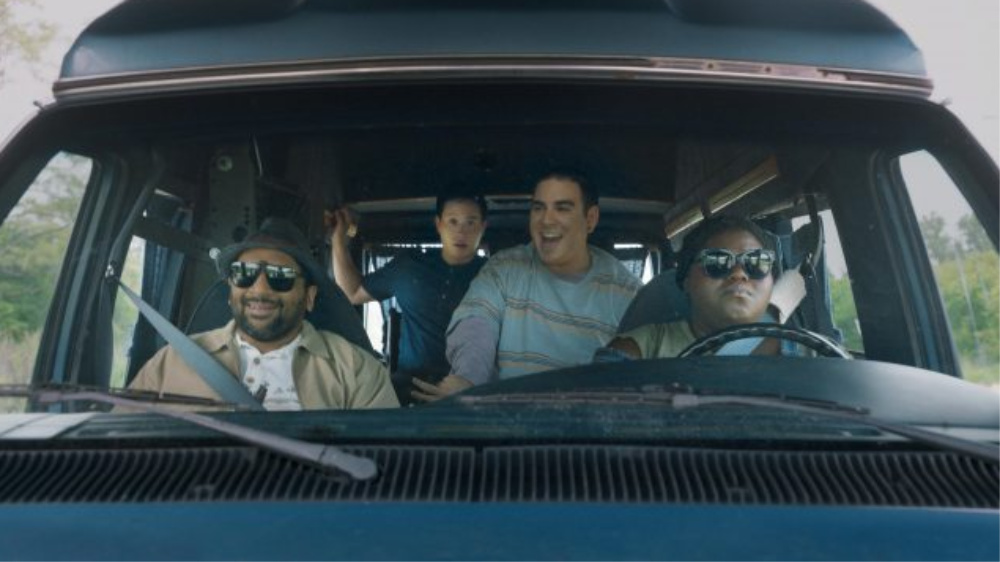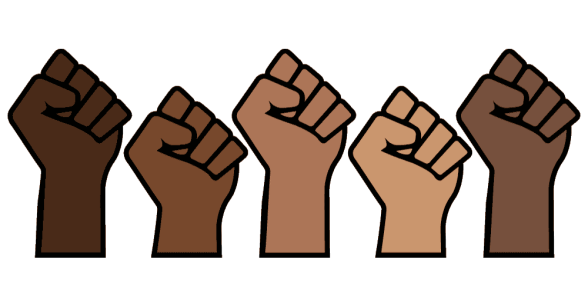Rooted in Rights Reviews: Come As You Are
Content note: sexual harassment
Come As You Are is a comedy about three disabled men and their trip to Montréal, Canada to lose their virginity at a brothel. The film, which is coming to theaters on February 14, opens to Scotty, a paraplegic 20-something who lives with his overbearing and intrusive mother Liz, waking up with a boner. Scotty doesn’t start out likable, as he objectifies women at his physical therapy center and is brash towards seemingly everyone he doesn’t sexualize.
Enter Matt, a new patient and wheelchair user who is assigned an attractive physical therapist. Scotty initially attempts to establish dominance over the new kid in town. That is, until he wants to use Matt to his advantage, convincing him to come on a road trip to Come As You Are, a Montréal brothel that specifically caters to disabled people. When Scotty and Matt try to convince their parents to let them go on a road trip, hiding the actual purpose behind it, both their parents shut it down. So instead, two grown men who should be able to make life choices for themselves have to sneak out of their houses early in the morning to escape their overbearing parents.
It’s disappointing that legally consenting adults have to evade their caregivers in order to act on perfectly normal desires. But unlike many films about disabled people, what makes Come As You Are unique is the recognition that disabled people have sexual agency. It’s disheartening, then, that the three main disabled characters are played by able-bodied actors. The film gives me hope for what movies centered on disabled characters could be, so it would have been nice to see disabled actors shine in those roles.
Some of the jokes in the movie feel a bit off considering that the actors are played by non-disabled people. At one point, Matt makes a joke about his limited mobility, but it feels at best awkward and at worst inappropriate for a non-disabled actor to make a quip about disabilities. Casting disabled actors would have made the humor in this film even better. That said, I was concerned that the disabled characters would be the butt of the jokes, but this was not the case. In fact, there were humorous moments that felt like they were written with the disability community in mind, like a scene that revolved around respecting the disability language preferences of the three main characters.
It’s frustrating, though, that the story is very much told through a patriarchal, misogynistic lens. For instance, Scotty’s actions cross an uncomfortable line as he hits on Becky, a physical therapist. At one point, he reveals he had an erection while Becky helped him stretch. Scotty’s sexual harassment made me uncomfortable at times, but maybe this is why a complex character like him is important.
As a feminist, I do not think that people should be sexually objectified. But as someone who is disabled, I believe disabled people should be able to do the same as their able-bodied peers. Scotty’s behavior is enabled by a patriarchal society, but he has to grapple with ableism at the same time. So, while it’s true that disabled men are often desexualized, Scotty shouldn’t be allowed to avoid accountability for his actions.
Women are the target of Scotty’s jokes. He says crudely that it’s not his fault that he constantly stares at women’s chests. His wheelchair puts him at “tit-level.” Blaming misogyny on a mobility aid is just gross, even if it’s supposed to be funny. This behavior is especially distasteful considering that disabled people in particular are more likely to be sexually assaulted than non-disabled people. And having a disability isn’t an excuse to objectify or sexually harass others, so it’s a positive thing that Scotty’s road trip buddies shut him down.
Come As You Are does raise important questions about how disabled men should be treated when they are misogynistic or sexually harass others. But, the film does not offer any clarity as to how disabled men should be held accountable for sexism or misogyny. Ultimately, this is larger societal issue that has no easy answers. On the whole, the actors all give meaningful and realistic performances, despite being non-disabled, which is a nice break from the two-dimensional disabled characters that are often written in television shows and movies, if they are included at all. I believe the power of the film lies in its its complex narrative around disability and sexual desire, inviting non-disabled people to explore the barriers that disabled people face in the realm of sexuality.
About Rooted In Rights
Rooted in Rights exists to amplify the perspectives of the disability community. Blog posts and storyteller videos that we publish and content we re-share on social media do not necessarily reflect the opinions or values of Rooted in Rights nor indicate an endorsement of a program or service by Rooted in Rights. We respect and aim to reflect the diversity of opinions and experiences of the disability community. Rooted in Rights seeks to highlight discussions, not direct them. Learn more about Rooted In Rights



